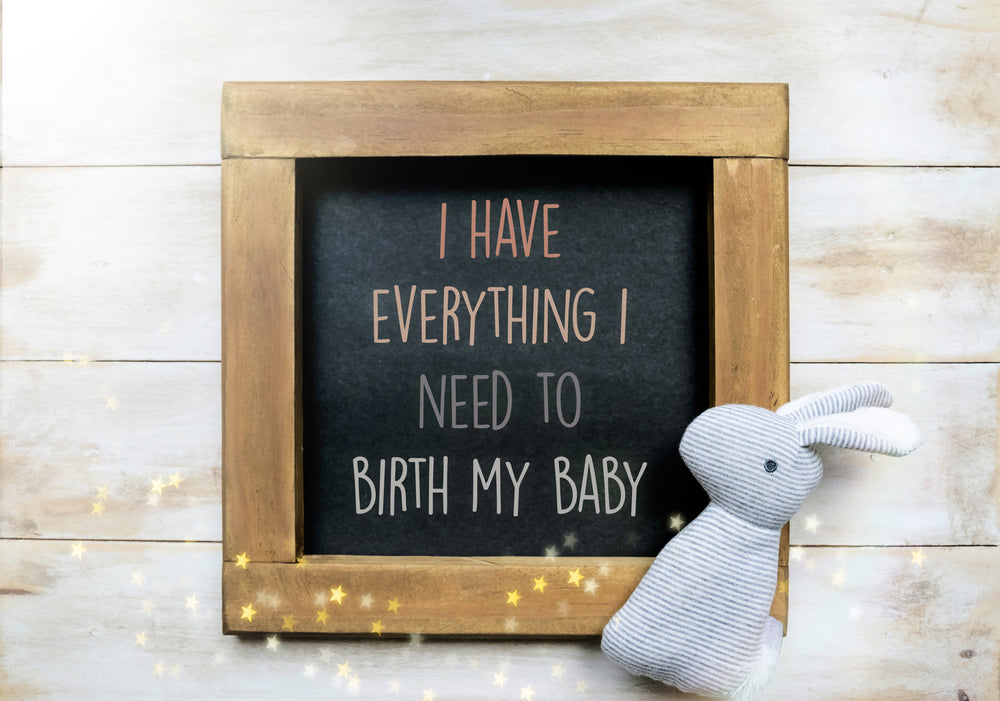What we say and the words that we use reflect the reality that we are living. During your pregnancy, labour and birth and, also, whilst you are living through the joys and challenges of early parenthood, aiming to use encouraging, affirming and enabling language can actually make your reality more positive and empowering! This is the same whether we are the birth parent, partner, family, friend or healthcare professional. Our words matter and we all need to use them wisely.
Pizzas are delivered!
Let’s start with ‘deliver’. As many birth workers like to say, “women give birth, midwives catch and pizzas are delivered!” The verb ‘to deliver’ is passive. It is something we do to something or, in this case, to someone else.
When we talk about midwives ‘delivering’ babies we forget who the most important person really is, which is the woman or person actually having the baby!
Midwives and doctors work miracles when they assist at a birth - if intervention is needed – but, no matter what, it is the pregnant woman or person who has done the work of growing and birthing that baby. So, instead, try to use phrases like: “When I gave birth”, “When I birthed the placenta”. Take back your power!
We don’t fail
If things did not go to plan, do not allow the word ‘fail’ to be used! No one fails to breastfeed, or fails to have a vaginal birth - or whatever it is that didn’t happen when we wanted it to. We don’t think that our legs fail us if we break a bone and need a splint!
Very often, it is things outside of our control that lead or contribute to our plans changing or not working out. So, know that you did not ‘fail’ and aim to be kind to yourself and your beautiful body if something did not happen as you wanted it to.
You are not allowed to not allow me
We can be positive and empowering to ourselves and others by remembering that the only person who can do the allowing, or letting, is the pregnant woman or person. For instance, the doctors cannot ‘allow’ - or ‘not allow’ - a woman to go past a certain date in their pregnancy because the only person who can allow something to happen to her own body is the woman who owns it.
So, aim to avoid questions like “Will they allow me to do that?” and, instead ask, “What is my decision about that?” The empowerment that comes from being reminded that our bodies are our own, and no one else’s, is incredibly powerful.
The power of positive birth words
When it comes to your birth, think about which words will be useful to you and which will not. You can write on your birth plan that you would like to have positive words used.
For instance, rather than “How bad is your pain? Do you need some pain killers?” your midwife/doctor or birth partner might ask “How are you feeling? You’re doing so well! If you need anything at all please ask.” If you decide to have vaginal examinations, for example, you can choose whether or not you are told how dilated you are and, if you choose to be told, ask them to do so positively. “Wow – you’re at 3cm! You’re doing brilliantly!” sounds so much better than “Oh, you’re only at a 3”.
Birth Affirmation Cards
Some people like to use birth affirmation cards. These can be bought online or you can make your own. They can be decorated and used to brighten your birth space or just written or printed on paper. It doesn’t matter, as long as you can read the words while you are having your baby. Come up with your own, or use these ideas, or both!
“I can do this”
“I am strong”
“My baby and I are safe”
“Each surge brings my baby closer to me”
“I am safe, I am loved”
If you birth in hospital or at a birth centre you can take your birth affirmations with you and put them up in your birth room, or just have them in your hand.
If you are having a caesarean birth you can also have birth affirmations. Many of these phrases work well, you may just need to recite them in your head during your birth, or ask your partner to tell them to you.
Post-birth positivity
After birth, positive reassurance can be so valuable. It can be lovely to hear people saying “You’re doing so well”, “Keep going, you’re doing this!”.
However, it is also vital to be listened to and it is therefore important to not allow positive phrases to accidentally become dismissive phrases. If you are struggling and say so, it is not helpful if someone replies with “But you’re doing so well!”. A more useful and empathic response would be “I know you’re finding this really hard. You may not feel like it, but you’re doing so well. I think you’re amazing. Let’s see what we can do together to try and help with the challenges you are having.”
If you are supporting someone after birth remember that, if she is finding something to be challenging, it does not necessarily mean she wants to stop. Saying things like “You don’t need to put yourself through this – I’ll just get a bottle” when your partner really wants to breastfeed may feel supportive but it is undermining her wishes. Seek out support from a local breastfeeding counsellor, or from the midwife or health visitor, and learn when things are going well so you can give positive feedback. “Look, she’s swallowing really well!” and “Wow, he looks so content on your milk.”
Summary
Our bodies are performing miracles through pregnancy, birth and beyond, so let’s celebrate that and talk positively about what we are doing. Positive words make us all feel better and reassurance and encouragement can work magic. Let’s be positive and encouraging to each other – and to ourselves!


















